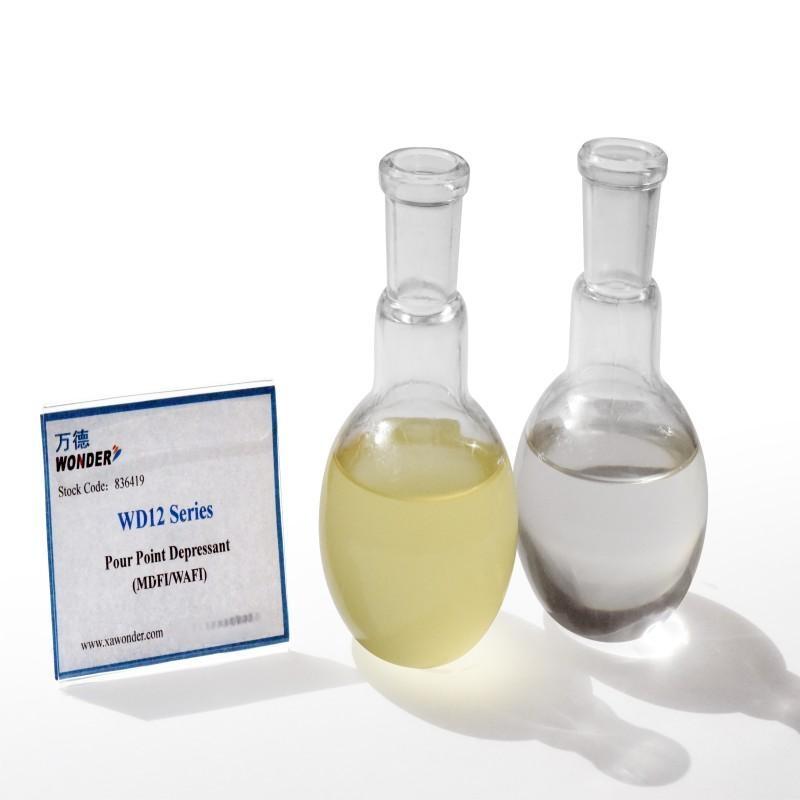-
Categories
-
Pharmaceutical Intermediates
-
Active Pharmaceutical Ingredients
-
Food Additives
- Industrial Coatings
- Agrochemicals
- Dyes and Pigments
- Surfactant
- Flavors and Fragrances
- Chemical Reagents
- Catalyst and Auxiliary
- Natural Products
- Inorganic Chemistry
-
Organic Chemistry
-
Biochemical Engineering
- Analytical Chemistry
-
Cosmetic Ingredient
- Water Treatment Chemical
-
Pharmaceutical Intermediates
Promotion
ECHEMI Mall
Wholesale
Weekly Price
Exhibition
News
-
Trade Service
At the recent OPEC+ producer meeting, many parties agreed to unify to accelerate oil production, bringing forward the original plan to increase supply in September to July and August, which will increase by about 650,000 b/d
per month.
As an ally of OPEC and the world's largest oil producer, Saudi Arabia has maintained a tough stance
before.
This time, it suddenly turned 180 degrees to increase production to make up for the gap in Russian production capacity, which made the international crude oil market cheer, thinking that the rise in oil prices was finally expected to end
.
But unexpectedly, after the news that should have been positive, oil prices not only did not recover, but rose more fiercely
.
This clearly shows that the supply and demand problems in the global oil market still make the market pessimistic, and the increase in production cannot make up for the shortfall
in oil and gas imports to Russia.
1.
Limited supply
Earlier, Nigeria's oil minister said in an interview: "If we can do something to increase production, OPEC will definitely increase production
.
" Unfortunately, this capacity does not exist
in most OPEC countries.
”
With the exception of Saudi Arabia and the United Arab Emirates, all oil producers are now producing less than the level of two years ago, and coupled with geopolitical shocks, supply constraints are the most severe
since the 70s.
Subjective reasons must exist, if production goes up so quickly, the opportunity for oil-exporting countries to make money is equivalent to giving it up
.
No one is so altruistic
.
However, objective constraints such as capacity shortages cannot be ignored
.
The most intuitive reason is that in addition to Saudi Arabia and the United Arab Emirates, many of the remaining OPEC members are still trying to meet their current quotas, let alone have excess capacity to increase their
quotas.
Moreover, oil production has a cost and can also have an impact
on supply.
This varies
from place to place.
In North America, the cost of oil refining rose from $5/b in 1999 to $11/b; In Europe, the same cost rose from $11 to $18 over the same period; Even in a specialized oil-producing country like Kuwait, the cost of producing a barrel of oil rose from $1.
40 in 2001 to $4.
42 in 2007, an average annual increase of about
18%.
As a non-renewable resource, the production cost of oil will affect the production allocation decisions of producers in each period to a large extent, and indirectly affect the fluctuation
of oil prices.
Especially during the pandemic, the demand side encountered Waterloo, and OPEC+ began to cut production by 9.
7 million b/d in May 2020, and fell again and again
.
After a period of collapse in oil prices, the debt levels of oil-producing countries have increased significantly, and the fiscal situation still needs to be improved
.
In addition, the accelerated global energy transition in recent years has also made international oil companies more favored low-carbon energy, including Kuwait and Nigeria, because the infrastructure does not meet the concept of carbon neutrality, and their capacity expansion requires a lot of money to support drilling work, resulting in OPEC government capital expenditure, in recent years significantly declined
.
Although demand is gradually recovering, but oilfield well opening production, closing and stopping production is not a simple process, has its own special objective law, affected by the internal situation of the well, opening the oil well valve to the maximum, does not mean that the output is the maximum, the production change has its regularity; And after the wells are shut down or shut down, the output of some wells can no longer even recover to the production level before the shutdown; Second, geopolitics still inhibits OPEC's capacity release
.
In particular, countries such as Iran, Venezuela and Libya are inherently unstable
.
2.
Demand recovery
It is the height of summer in the northern hemisphere, and seasonal demand will gradually peak
.
During this period, energy prices continue to rise, which is a high probability event
.
Especially on June 2, after several rounds of negotiations, the EU decided to gradually stop member states from purchasing Russian oil by sea, and complete the ban on 90% of Russian oil imports
by the end of the year.
Only small landlocked countries such as Hungary, which are too dependent on Russian energy, have been temporarily exempted from importing Russian oil through onshore oil
pipelines.
These sanctions will inevitably trigger a new round of oil price increases on the already high energy base, disrupt the supply chain, and destabilize the energy market
.
According to a forecast from Goldman Sachs on June 6, the oil price target for the summer peak was raised from $125 to $140
.
OPEC core members concentrated on the statement that oil prices are far from peaking, the recovery of Asian demand will bring more consumption, if Russian oil and gas completely withdraw at this time, energy prices may reach far more than expected
.
This view is also the current general consensus
.
In recent months, international crude oil, despite soaring prices, quickly fell back to around $110 after peaking at $139.
13 in early March, and continued to fluctuate in this range to reach a brief equilibrium
.
As of today, the price of Brent crude oil has once again exceeded $120, reaching a new high
since March.
Without substantial changes on the supply side, such as the full liberalization of Venezuelan or Iranian oil, this price will be far from the end
.
On the one hand, it is because of the smaller decline in Russian crude oil exports
.
On the other hand, due to the epidemic, China has implemented some strict epidemic prevention measures, resulting in a slowdown in industrial production and naturally weakening demand for oil
.
The short equilibrium period soon ended
.
The agency predicts that Russian oil production will most likely decrease by another 500,000 barrels
per day.
The greater impact is that with the epidemic under control, major cities have lifted lockdowns one by one, and the huge demand for the Chinese market has begun to recover
.
Once we return to normal oil consumption levels, energy supplies will be tighter
.
At present, China is the first importer and second consumer of the global crude oil market, which has a great
impact on international oil prices.
Since the 90s, although domestic oil production has gradually increased, with the rapid growth of social economy, the speed of oil consumption is much greater than the growth rate of production, and the import volume has increased
year by year.
From 7.
556 million tons in 1990 to 513 million tons in 2021, an increase of more than 67 times, and the degree of external dependence has also increased from 6.
58% to 73%, this span is amazing
.
Looking at 2021 alone, China's oil demand is 703 million tons, accounting for 15%
of the world.
Of course, the recovery of oil demand is not only a major trend
in China, but also in the whole world.
As early as 2020, Goldman Sachs had predicted that global oil demand would return to pre-pandemic levels in 2022 and continue to rise
due to increased spending on infrastructure and an increase in the number of people traveling by transportation.
Moreover, this rise in demand will not peak
before 2030.
The IEA also recently said that oil demand has exceeded supply, vaccinations have boosted the global economy, and the oil gap is expected to widen
.
3.
Epilogue
Of course, the change in international oil prices is never simple, it is not a simple supply and demand relationship can be explained, but there are also hidden geopolitical characteristics, consortium interests, war premiums, international capital flow trends and world economic cycles and other factors
.
But at least in the short to medium term, we will have a more volatile energy market
.
The simple and more worrisome way to stop oil prices is a recession
that shrinks the global economy and curb demand for crude oil.
When Brent crude oil rises to a level of around $140, it means that demand may decrease again, causing the economy to slow or even decline, forcing it to reach a balance between supply and demand
.
That day may not be far away
.







